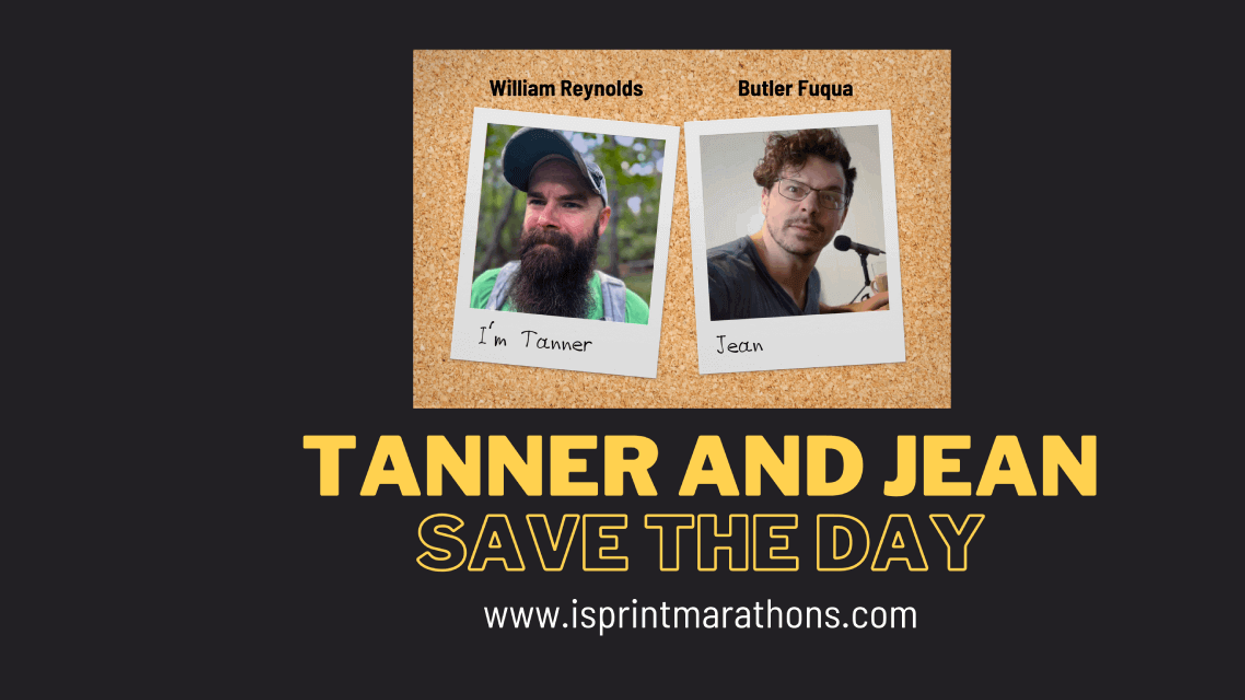How I Wrote a Screenplay in One Month While Balancing Work and Family
It's not easy finding that work-life balance especially when you add writing to the mix.

'Tanner and Jean Save the Day'
This post was written by Butler Fuqua.
Do you ever fall on your face over and over again, but just keep asking for more? Yeah, me neither...
I had dreamed of finishing a screenplay for years with nothing to show. It wasn’t until recently that something clicked for me, and I could write page after page with little effort. One month later, I had the first draft of a feature-length screenplay.
I had trouble getting started, my days were full of work and family, and that little “you’re never gonna make it” voice was louder than ever. Nevertheless, I persevered and I believe my story may help you.
From Unfinished Dreams to a Completed Script
Well, to write a screenplay, you need to solve the mystery of how to start writing it.
Simple enough… in theory. The problem is always the same:
- Where do I start?
- Do I need to map out the plotline first?
- Maybe I should start with the characters.
- No, I need to write out all the acts and make bullet points, that’s it!
- Maybe a beat sheet?
These were the questions swirling around in my mind that kept me from making progress. Then one day I had an experience that broke this spell.
Don’t overthink it
I wanted to make a video with friends from my Bible study group, and I thought it would be a fun exercise to write a little script. My idea was to write a 2-3 minute comedy short we could make in my backyard.
See, I’ve always been an overthinker. This has both served me well and crippled me in many ways. But when I started writing this fun little script for my friends the actions, dialog, and scene transitions started pouring out of me faster than I could write.
That 2-3 minute movie idea turned into a 118-page feature-length screenplay that is now in pre-production (shameless plug).
Focus
One question I kept asking myself during this journey was, “Am I writing the story, or am I just writing about the story?”
My advice to you is to find any piece of your script that gives you energy and begin there. When I started with the details—the actions, the dialog, the transitions—all the plotlines and character development surfaced without much effort. You have to trust that the story inside you will surface as you write.
Balancing work, family, and screenwriting
I love my family, and there is no chance that I will sacrifice time with my wife and young children when I don’t have to.
I’m still working full-time as a web developer, and my boss doesn’t seem to be a fan of me staying home to work on my screenplay instead of coming to work. Weird.
I tried getting ChatGPT to do all the work for me, but that didn’t work out either.
You have to accept there aren’t going to be any shortcuts. And that’s a good thing. That’s what makes you and I stand out when we succeed.
Dedicated Time
I started with what I call “Dedicated Time.” Dedicated time is the time you almost know you’ll have to work on your screenplay. For me, this was after the kids went to bed. Sometimes I had 3 hours, and sometimes I only had 30 minutes. Just make sure you set aside time each day to move the needle forward a little.
Surprise Time
Surprise Time is what I call when I found myself pleasantly surprised that I had nothing to do. This is rare for a working parent of little children, but it does happen.
I made sure that I kept my head in the game as much as possible and my computer at the ready. I didn’t watch much TV or movies while writing my script. I’d listen to acting and film-related podcasts on the way to work, and I would bring up my script with friends I trusted.
Keeping the Script in Mind
While at work I kept a small pad of paper next to me to jot down an idea if it came to. Again, don’t tell my boss I did that. He’s more a fan of me doing my job and not daydreaming. I don’t get it either.
This helped me to stay close enough to my writing mindset that I could take advantage of the random 20-minute here-and-there moments.
The Little Loud Voice
That little voice that hates your dreams will be louder than ever during your journey. This devil on my shoulder never went away, I just learned to ignore it.
If you don’t know what I’m referring to, it’s the doubt that creeps in while you’re working on your script. I had thoughts like:
- This is a waste of time.
- You can’t write a screenplay unless you know someone in the business.
- You’ve tried before and failed, this time won’t be any different.
The Power of Faith
Moving forward without any guarantee of success takes an act of absolute faith. You just have to trust you’re not wasting your time.
Now It’s Your Turn
I hope my story has helped you in one way or another. I can’t speak for everyone, but what helped me was focusing on the story, making good use of time, and ignoring thoughts of doubt.
This post was written by Butler Fuqua.
- How to Break into the Writers' Room—Support Staff Edition ›
- Experts Tell Us About Today's TV, from Pitches to Shoots ›
- Listen to SS Rajamouli and Steven Spielberg Discuss 'RRR' and 'The Fabelmans' ›
- 6 Ways You Can Start and Run a Writing Group | No Film School ›
- Defining the Most Popular Screenplay Transitions | No Film School ›












